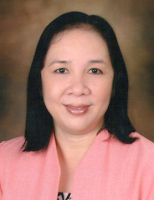This of course will also depend on the leaders within every academic institution. The Nursing Department of every Philippine university is a gem that should be constantly nourished by leaders of the highest caliber. The student nurses, the clinical instructors, and the entire nursing faculty are highly dependent on the Dean. It is a tough job that is always bestowed to the best of the best. This week, we are highlighting an amazing woman who leads one of the best nursing schools/universities in the Philippines.
Dr. Ma.Elizabeth C. Baua finished her BSN (1979) at Perpetual Help College Manila. After passing the local nursing licensure examination she worked as the Operating Room (OR) head nurse at the Philippine Children’s’ Medical Center from 1980-1983. As an OR nurse, Dr. Baua specialized in assisting and scrubbing for pediatric brain surgeries. In 1983, she worked as nursing supervisor at a 35 bed clinic facility in Tuguegarao City Cagayan together with her husband who worked as full time paediatrician.
 |
| Elizabeth Baua |
In 1992, she was encouraged to work as part time faculty at Saint Paul University of the Philippines (SPUP) for midwifery students. This invitation from the SPC sisters started her challenging career as academician. In 1993, she was invited to work on a full time basis as Midwifery Coordinator for 2 years. In 1995, she finished her Master of Science in Nursing major in Women’s’ Health and minor in Diabetes Nursing Education. She pursued her post graduate education at St Paul University Philippines and finished with the degree Doctor in Nursing Science. Her dissertation focused on faculty caring behaviors and academic performance of nursing students in a problem-based learning environment at SPUP.
At present, she is the Dean of the School of Health Sciences and Program Chair of the DNS program of the university. She is also in charge of the MS/MA programs for international students.
Let’s discover the recent experiences of Dr. Baua when it comes to professional development and international conference.
You were a speaker in a recent international conference held in Indonesia. Please tell us about this event and what opportunities did it provide to nursing in the Philippines and your school in particular.
The invitation came from the Association of Health Sciences Colleges of Indonesia in collaboration with the Southeast Asian Ministry of Education Organization Regional Open Learning Center (SEAMOLEC) in response to globalization and mobility of health workers in the ASEAN ECONOMIC COMMUNITY (AEC) 2015. The Association organized a seminar with the theme “Challenges and Opportunities for Private Higher Education in Indonesia to face the tasks of ASEAN Economic Community 2015”.
The participants were heads of schools and colleges in Indonesia and who were also members of the association who would like to forge partnership with Saint Paul University Philippines for graduate education, English bridge programs, research collaboration and faculty –student cultural immersion programs. This endeavor provides St Paul University Philippines another opportunity to expand its horizon towards internationalization and cross border collaboration.
The university promotes transnational education as part of its initiative to continued economic ASEAN integration and as an academic strategy for students to become globally competitive. The opportunity to be invited as speaker in international conferences further strengthens linkages with other ASEAN universities and professional organizations. The international market will look at Philippine nurses as market for employment. On a personal note, I believe that these exposures would further enhance our professional competitiveness.
As the head of one of the leading nursing school in Southeast Asia, what are the challenges in keeping quality and high standards in teaching, research and community engagement?
To sustain quality and excellence in nursing education, St Paul University Philippines ensures that Paulinian nurses demonstrate continuing commitment to excellence and quality improvement as they leave the halls of their alma mater. We engage our students to reflective practice and help them set attainable learning goals. We have developed innovative programs that warrant quality and excellence in whatever endeavors we do. The university also supports faculty engagement to continuing education, research and post graduate education to enhance professional qualifications. Our faculty and students are driven to actively participate in national and international conferences as speakers or presenters and share research findings.
Community engagement is another best practice of the University. We engage the faculty and students to service learning endeavors and community participation opportunities. We have a broad spectrum of community engagement activities to engage the faculty, students and community partners and stakeholders. We involve them in health planning, decision making, service delivery and evaluation.
